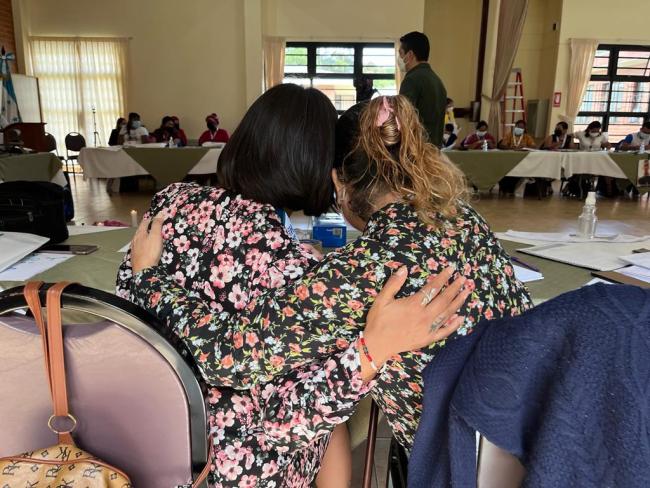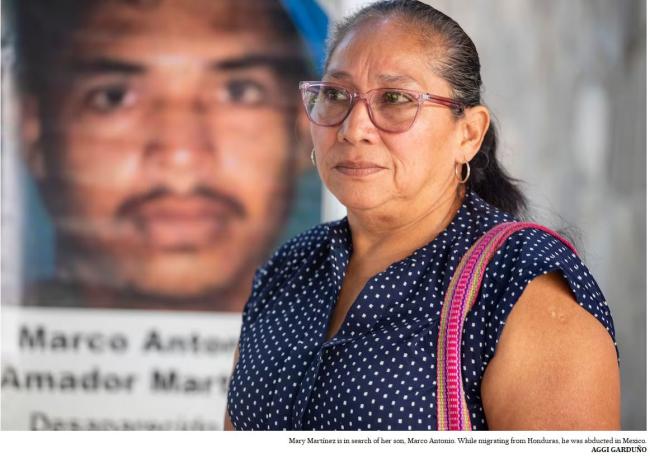Together in Hope and Solidarity: Families of the Missing in Latin America

The context and circumstances of those who go missing may be different, but their families share the same need: to know what happened to them and where their loved ones are.
Recognizing the vital role of families, as fundamental actors in the search for their loved ones, and building on the experience of the 2021 International Conference for Families of Missing Persons, the ICRC convened for the first time a regional and a national conference in Guatemala and Brazil to promote peer-to-peer exchange of experiences and capacity building.
Each conference aimed at looking at disappearance from the point of view of families, creating a space for them to exchange stories, experiences, uncertainty and pain, as well as sharing their needs with authorities and strategies to make their voice heard.
In Guatemala, 45 families representing 24 associations from El Salvador, Guatemala, Honduras and Mexico came together to discuss common challenges and exchange reflections, experiences and lessons learned from the search process, as well as to create a regional network of solidarity between families.
"We are here because we want to unite in the search for our missing. Being together makes us stronger because we know that we are not alone. Together we will light candles and that light is what will guide us to find our loved ones," said Flor Idalma González Andrés, a representative from the Oxlajuj Ajpop collective.
In Sao Paulo, Brazil, the conference brought together 60 families from across the country. This first national conference was an opportunity not only to work together towards strengthening the ties between different family associations, but also to increase coordination with state authorities. (Some of the conference sessions were attended by the Brazilian Ministry of Justice, the Public Defender's Office of the state of São Paulo and the Public Ministry of the state of Rio de Janeiro.)
"It is a very important event and one with enormous symbolic value. The ICRC has been working with missing persons together with families since it was founded. We want to strengthen the voices of families, which in many cases are silenced," said Rita Palombo, an ICRC protection coordinator.



